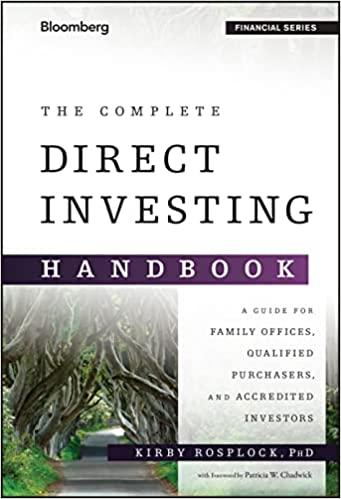Question
Your client is Bob Jones. Bob, age 60 and single, has recently retired from IBM. He has $690,000 available in his 401(k) fund and he
Your client is Bob Jones. Bob, age 60 and single, has recently retired from IBM. He has $690,000 available in his 401(k) fund and he is thinking of using that money to open a used car business that will be located at 210 Ocean View Drive in Pensacola, Florida. Bob has estimated that the business might make $300,000 in taxable income. Bobs personal wealth including investments in land, stocks, and bonds is about $14,000,000. He reported an interest income of $20,000 and dividend income of $6,000 last year. The $14,000,000 includes land worth $9,000,000 that Bob bought in 1966 for $450,000. Bob has hired your firm for professional advice regarding whether he should operate as a sole proprietor, a partnership, an S corporation, or a C corporation. He is also considering transferring a possible 40% interest in his new business to his daughter Mandy, age 23 and single.
Differentiate between accrual accounting and cash basis. Based on the type of business and the clients accounting system, what is the impact when revenue is recognized? Which option would you recommend for the client?
Based on the decision of accrual vs. cash basis, describe when revenue would be recognized on the sale of inventory, and how the accrual reporting differs from cash basis.
Determine the economic impact on the clients financial situation. Based on your decision, determine the potential tax liability, keeping in mind appropriate Internal Revenue Code and Treasury regulations.
Summarize the cash or accrual accounting method in relation to the selected business entity
Step by Step Solution
There are 3 Steps involved in it
Step: 1

Get Instant Access to Expert-Tailored Solutions
See step-by-step solutions with expert insights and AI powered tools for academic success
Step: 2

Step: 3

Ace Your Homework with AI
Get the answers you need in no time with our AI-driven, step-by-step assistance
Get Started


